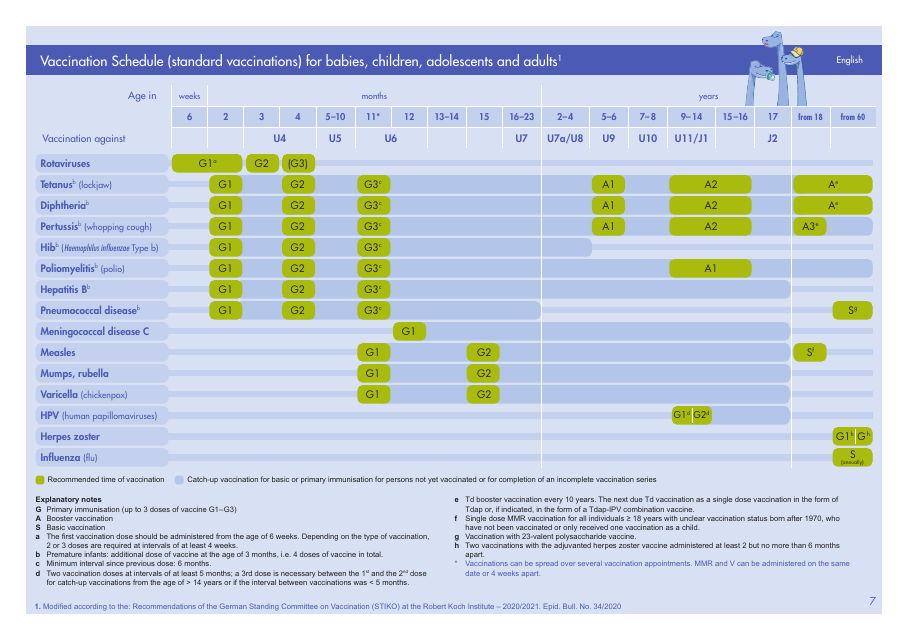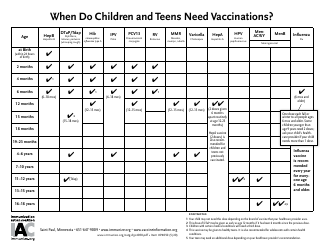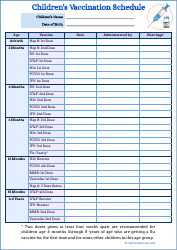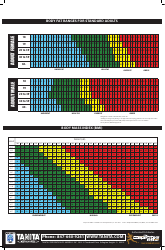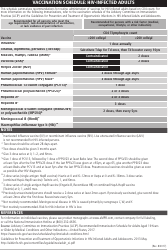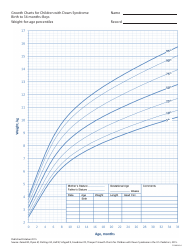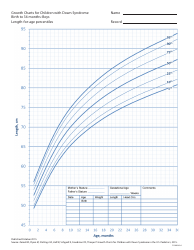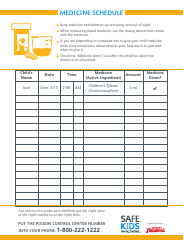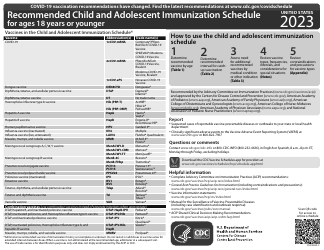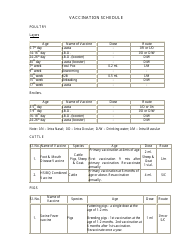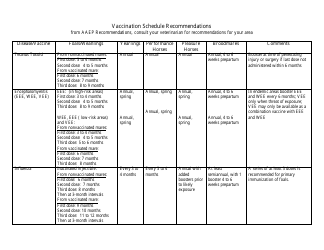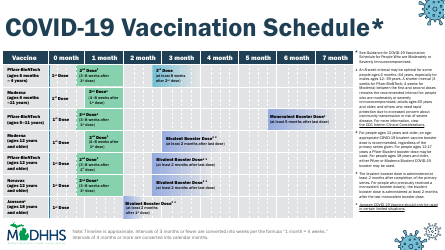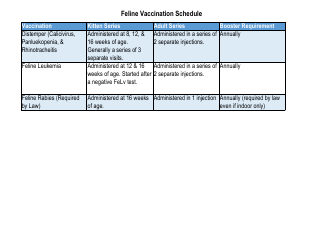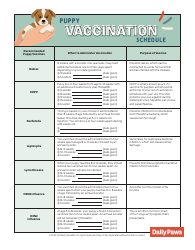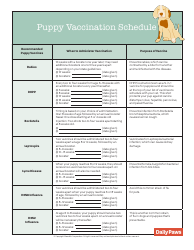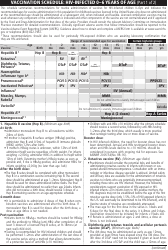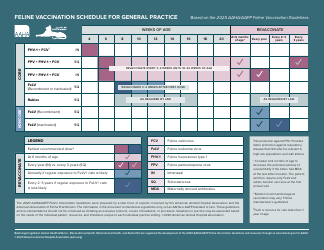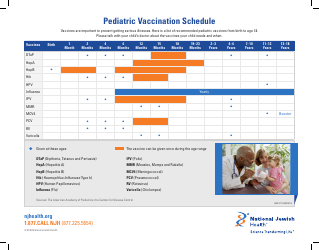Vaccination Schedule (Standard Vaccinations) for Babies, Children, Adolescents and Adults
The Vaccination Schedule is a series of vaccinations, including the timing of those vaccines, which are recommended from birth through adulthood. These schedules are designed to protect individuals and the public at large from infectious diseases. Each country has their own recommended schedule based on the prevalence of different diseases.
In general, the schedule begins with vaccinations shortly after birth, and many essential vaccines are administered during the first two years of a child's life. During those years, babies receive vaccines for diseases like Hepatitis B, Rotavirus, Diphtheria, Tetanus, Pertussis (Whooping cough), Haemophilus influenzae type b, Polio, Pneumococcal disease, Rotavirus, and Measles, Mumps and Rubella.
Booster shots usually continue throughout childhood to maintain and enhance immunity during the key developmental stages of a child's life. In adolescence, vaccines are recommended for bacterial meningitis, HPV (Human papillomavirus), and others.
For adults, the annual influenza vaccine is recommended. Other adult vaccinations or boosters depend on different factors like age, lifestyle, overall health, travel plans, and previous vaccination history.
It's important to know that these schedules are guidelines, and the exact timing of certain vaccines can depend on a variety of factors, including the specific vaccine, a person's health history, and more. Consult with healthcare providers for a detailed and individual vaccination plan. Regular vaccinations can protect individuals and communities from serious, and often fatal, diseases.
The Centers for Disease Control and Prevention (CDC) in the USA, Public Health Agency of Canada, Ministry of Health and Family Welfare in India, and the Department of Health in Australia are responsible for filing the vaccination schedule for babies, children, adolescents and adults in their respective countries.
FAQ
Q: What is the standard vaccination schedule for babies in the USA?
A: In the U.S., standard vaccinations for babies start at birth with the Hepatitis B vaccine, followed by additional doses at 1-2 and 6-18 months. Vaccines for Rotavirus, Diphtheria, Tetanus, and others follow in the first 15 months. Full recommendations can be found at the Centers for Disease Control and Prevention (CDC) website.
Q: What vaccines are recommended for children in Canada?
A: In Canada, after the initial vaccinations at birth, children receive further immunizations at 2, 4, 6, and 18 months, and at 4-6 years. This includes vaccines for diseases such as Hib, Pneumococcal Disease, Measles, Mumps, Rubella, and Varicella. Details can be found on the Public Health Agency of Canada's website.
Q: What is the recommended immunization schedule for adolescents in India?
A: Adolescents in India at the age of 10 and 16 are given the Tdap and HPV vaccine respectively. The Government of India's Immunization schedule can be referred to for more specific information.
Q: What vaccines are advised for adults in Australia?
A: In Australia, adults should have a Tetanus, Diphtheria, Whooping cough booster every 10 years. Pneumococcal and Flu vaccines are also recommended for adults over 65. Specific guidance can be found on the Australian Department of Health website.
Q: Do the vaccination schedules vary among the USA, Canada, India, and Australia?
A: Yes, vaccination schedules can vary based on the recommendations of each country's health department and on the prevalence of certain diseases in each country.
Q: Are vaccination schedules mandatory?
A: Vaccination schedules are recommended for public health safety, but regulations on whether they are compulsory vary by country, state and personal exemptions available.
Q: Why is it important to follow the vaccination schedule?
A: Following the recommended vaccination schedule can protect individuals from potentially dangerous diseases, reduce the spread of these diseases, and contribute to herd immunity in the community, protecting even those who cannot be vaccinated.
